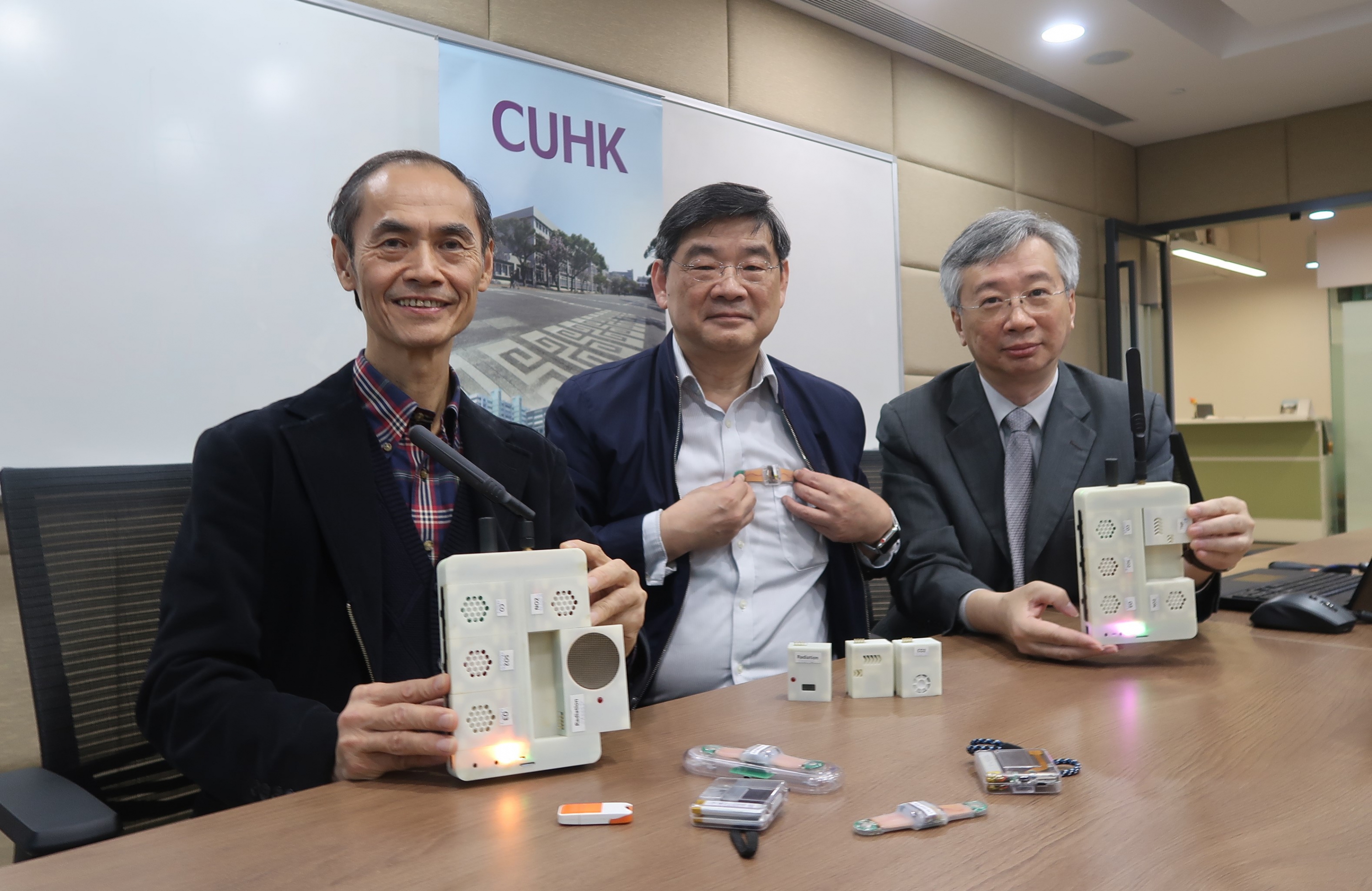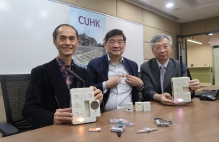CUHK
News Centre
CUHK Institute of Future Cites Provides Feasible Applications for Building Smart Cities Cluster in Greater Bay Area
The Central Government released the Outline Development Plan for the Guangdong-Hong Kong-Macao Greater Bay Area (GBA) to spur development in the GBA, bringing new opportunities for Hong Kong’s science and technology advancement. One of the main directions of the Plan is to build a new smart cities cluster and promote sustainable development. The Institute of Future Cites (IOFC) of The Chinese University of Hong Kong (CUHK) has been striving to bring together research talent from across disciplines to help Hong Kong become a leader in the GBA smart cities cluster. Through the guidance of urban development theories, the use of innovative technology, and intelligence software embedded in the platform, urban big data in a multimedia format can be collected, analysed and exchanged.
Professor Wong Kam-fai, Associate Dean (External Affairs), Faculty of Engineering, CUHK said, “As technology is advancing rapidly, making the best use of it to create a smart cities cluster ideal for living, working and travelling is one of the key development goals of the GBA. It is also consistent with the mission of the Institute of Future Cites of CUHK.”
Professor Fung Tung, Director of IOFC, CUHK said, “The close linkage of innovative technology and urban development is transforming the GBA into a new form of cities. Smart and sustainable cities are important to ensure all city dwellers in different sectors can really enjoy an improved quality of living and greater well-being in the GBA.”
IOFC recently announced the latest research findings on urban air quality and personalised medicine, which will provide feasible applications for the development of a smart cities cluster in the GBA. The research projects include:
- Plug-and-Play Air Pollution Monitoring System – A modulised air pollution monitoring system with a selection of modules for testing carbon monoxide (CO), sulphur dioxide (SO2), ozone (O3), nitrogen dioxide (NO2), carbon dioxide (CO2), radiation, and temperature-humidity-pressure. Users are able to configure the monitoring system quickly and easily base on their own needs by inserting proper modules into the main system.
- Wearable Particulate Matters Monitoring System – Airborne particulate matter (PM) is one of the main indicators of air pollution. The smog formed by dense PM has become more common in recent years. It can cause respiratory and cardiovascular diseases which are harmful to health. This project is an IoT based PM monitoring system with a wearable device, which is able to measure PM1.0, PM2.5, PM10, temperature and humidity in the nearby area. Users carrying the device with them are able to monitor their personal PM exposures in real time. This system can collect wider and more comprehensive data and help in urban planning for the future.
- Wearable ECG Monitoring System – A personalised and continuous electrocardiogram (ECG) monitoring system, including a wearable ECG device, a mobile App, and a web interface. Users can keep track of their cardiovascular health condition at home by using the system, or have health advisors monitor and analyse their ECG information remotely through a web interface.
The above three systems can be connected to a computer or smart phone to receive data for real-time visualisation and analysis. Integrated with urban big data analysis, the systems can contribute to the promotion of public health and personal health in the city.
About Institute of Future Cities of CUHK
IOFC consists of four Centres and one programme. They are the Centre of Community and Place Governance, the Centre of Land Resource and Housing Policy, the Centre of Urban Sustainability, the Centre of Urban History, Culture and Media and the Urban Informatics Programme.
The vision of IOFC is to develop into an institute of excellence, a leading multi-disciplinary research institute carrying out impactful research on urban theories and practices covering policy, plans and design, especially for Hong Kong, mainland China and Asia. IOFC aims to play a key networking role between the international urban research communities and those in Asia.



